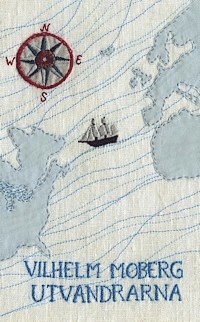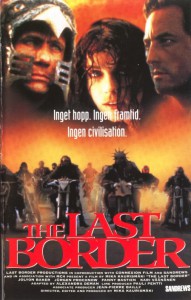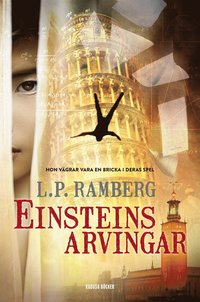
I have finally found time to play through Mass Effect, a game I bought more than five years ago. Now I am annoyed that it took so long time for me until I started playing it. It also took quite a long time for me to stop playing the game, about 40 hours of play to go through the full story. The reason is that it simply has one of the best storylines of any game I have played.
When humanity discovers a cache of technology on Mars in 2148, built by an advanced but extinct galactic civilisation called the Protheans, we are able to adapt and use this technology to perform swift interstellar travelling. It also means that we are able to join the inter-stellar community and its political system, with political manouvering on galactic level.
The story in the game starts 35 years later. The player controls a veteran soldier, called Shepard, who is sent with the experimental space vehicle to Eden Prime, a human colony planet, to retrieve an old Prothean beacon that was found during an archeological survey. When arriving at the colony, it is under attack from the geths, a robotic race, for reasons that are not clear from the beginning. From that point the plot uncovers bit by bit, and by the end of the game everything is on such a grand scale that it induces vertigo.
One really good thing in the game world is that humans really is a minority species on the galactic level. The 35 years of contact with the other civilisations are really nothing compared to the many thousands of years that the galactic council has been active. The other species do not trust the human newcomers, and we are to a large degree excluded from the inter-stellar political life. This true unimportance contrasts well with the tendency in many other science fiction settings to always put humans in the leading position of all significant activities. On the other hand, all species speak English, but I found no explanation in the game for this behaviour. Either they are only polite to the linguistically limited humans, or some kind of quick-translation technology is involved.
Another good aspect of the game is that the choices of the player matter to a very large degree. At the start of the game, the player not only choose a specialisation but also gender and background. These choices affect how the story is played out and how the other characters in the game interact with the player. In addition, there is a clever dialogue wheel used when talking with other characters, and the chosen dialogue options will also have impact on the game. All dialogues are made with voice actors, mostly with very good results. More importantly, fundamental choices have to be made at several points in the story which the player has to make without having all the facts clear, and then has to live with the consequences. This open ended story-telling is really what makes this game great.
To make up for the great storyline the game has a hopeless user interface. It is often needed to micro-manage the inventory, but there is no real inventory to manage. Instead there is an unsorted list of equipment in different categories that are not visible at the same time. In addition the large number of technical glitches that I encountered was really annoying. It is easy to assume that a game that was released on Windows in 2008 would have had sufficient time to be patched up to work flawlessly in 2014, but that is not the case here. About a dozen times while playing Shepard ended up outside the game geometry forcing a reload of the game. The sound effects in some of the areas were not functioning correctly.
Despite the technical annoyances, Mass Effect is a very good game. Knowing that there are two sequels to the game, there is a certain risk that I will play them as well at some time in the future.





